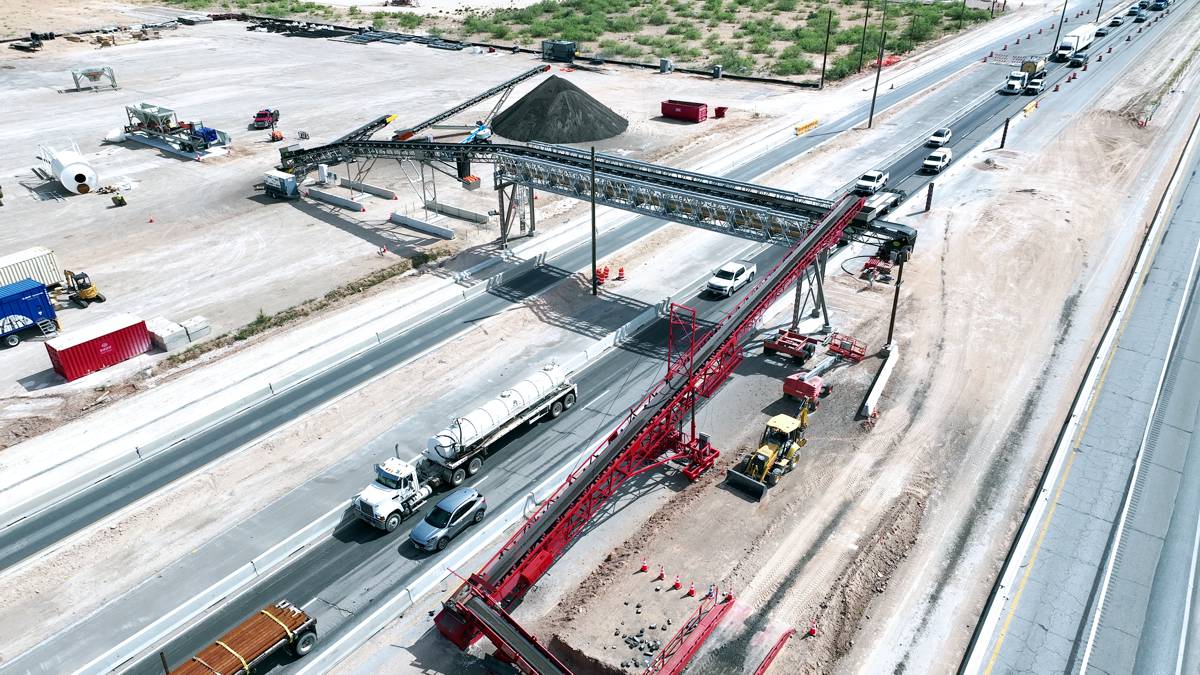NAPA launches 2020 asphalt recycling survey
Each year, the National Asphalt Pavement Association (NAPA) surveys the industry to document the volume of recycled materials used in new roads. Since 2009, this survey has confirmed that asphalt pavement mixtures are the most recycled material in the United States.
Every year, nearly 100 percent of the material removed from old roads and parking lots is reclaimed for use in new pavements.
To quantify the amount of recycled material used during the 2019 construction season, NAPA is encouraging every asphalt mix producer in the United States to participate in its latest survey on the use of recycled materials and warm-mix asphalt. This confidential survey is conducted by NAPA under a contract with the Federal Highway Administration (FHWA). Responses are sought from producers of all sizes and from every community in all 50 U.S. states, as well as all U.S. territories. Additional information is also being sought about the use of in-place recycling technologies during 2019.
“In 2018, data from more than 1,300 asphalt plants were included in the survey, ensuring a high level of reliability for its findings. Greater industry participation in the survey helps ensure the industry’s environmental impacts are properly understood by federal and state agencies, as well as the public,” stated Brett Williams, NAPA Director of Engineering and Technical Support, who is administering the survey. “It is thanks to companies’ willingness to participate in the survey that we can prove the inherent sustainability of asphalt pavements, as well as encourage greater use of reclaimed asphalt in new pavements.”
NAPA and FHWA have tracked usage of reclaimed asphalt pavement (RAP), recycled asphalt shingles (RAS), and warm-mix asphalt (WMA) annually since the 2009 construction season. The survey has been cited more than 350 times in academic literature, and is used by FHWA, the Department of Energy, and other public agencies to measure the impact of these technologies.
The results from the 2018 construction season were released in September 2019, showing that more than 84.7 million tons of recycled material was used in asphalt pavement mixtures during 2018. This includes RAP and RAS, as well as other reclaimed and recycled materials, such as ground tire rubber, steel and blast furnace slags, coal combustion products, and cellulose fibers.
In addition, about 79.5 million tons — more than 20 percent of total asphalt pavement mixture produced in 2018 — used WMA technologies to reduce mix-production temperatures. The full results of the 2018 survey are available here.
All asphalt mix producers operating in the United States and in U.S. territories are encouraged to participate in the confidential 2019 construction season survey by April 1. Visit the website to participate.
For the 2019 construction season, FHWA asked NAPA to expand the survey collection effort to include in-place recycling techniques, including cold-in-place, hot-in-place, cold central plant recycling, and full-depth reclamation. Companies using these technologies are also encouraged to participate in a short supplementary survey here.
Data from the surveys are kept completely confidential and are only reported in aggregate and used to determine quantities. State-level data are reported only if three or more companies from the state or territory participate. No company-specific information is disclosed or used for any purpose.





























